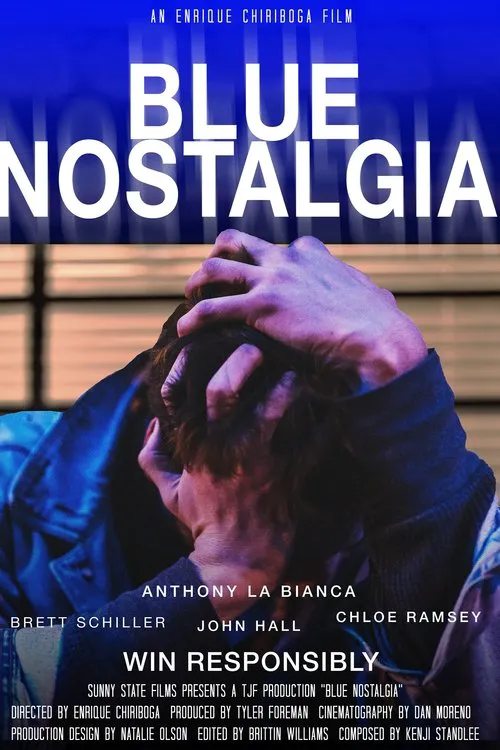Blue Nostalgia

Plot
In the gritty and dark world of Blue Nostalgia, Ted finds himself entangled in a vicious cycle of addiction, desperation, and longing for a better life. The city that once held promise and excitement now seems to suffocate him with its bleak reality. Ted's daily existence is a monotonous routine of handing out fliers in Times Square, a humiliating task that serves as a stark contrast to his once aspirational dreams. As he navigates the crowded streets, Ted's gaze often drifts to the nearby billboards and advertisements, a constant reminder of the glitz and glamour that he can no longer access. His fixation on the lottery ticket serves as a desperate attempt to reclaim a sense of hope and control in his life. Each day, he spends a small fortune on lottery tickets, holding onto the fleeting possibility that he might hit the jackpot, thereby escaping the poverty and desperation that threatens to consume him. Kendrick, a ruthless and cunning drug supplier, lurks in the shadows, searching for Ted to collect the debt that the latter failed to pay. Kendrick embodies the darker aspects of the city, preying on vulnerable individuals like Ted and sucking them into a vortex of addiction and debt. His presence looms over Ted, casting a foreboding shadow on the young man's fragile existence. Ted's relationship with Margot is complex and tumultuous. On the surface, she appears to be a caring and supportive partner, urging Ted to quit his addiction and find a better life. However, as the story progresses, it becomes clear that her motives are shrouded in her own self-interest. Margot's constant pressure on Ted to continue using drugs serves as a means to keep him under her control, feeding into her own sense of dependency and emotional validation. Throughout the film, Margot's character walks a fine line between enabling and manipulating Ted, creating a toxic dynamic that fuels his addiction. Her actions, though well-intentioned, serve to further entangle Ted in the cycle of addiction, making it increasingly difficult for him to escape. As the story builds towards its climactic conclusion, Ted's luck seems to change when his lottery ticket finally yields a massive payout. However, this new turn of events also spells the end of his relationship with Margot, who is forced to confront the true extent of her own complicity in Ted's addiction. In the aftermath of Ted's newfound prosperity, the film presents a nuanced exploration of the long-term effects of addiction and the devastating consequences of enabling relationships. As Ted seeks to rebuild his life, he must confront the ghosts of his past, including the trauma inflicted by Margot's enabling behavior. The film's bittersweet conclusion offers a glimmer of hope, but it is tempered by the harsh realities of Ted's experiences. Ultimately, Blue Nostalgia is a powerful and unflinching portrayal of addiction, set against the gritty backdrop of New York City. The film's exploration of the complex relationships between addiction, trauma, and codependency serves as a stark reminder of the devastating consequences of allowing addiction to fester and spread. Through Ted's story, the film delivers a sobering critique of the societal pressures and systemic failures that contribute to the proliferation of addiction, leaving the viewer with a lasting sense of unease and a deeper understanding of the long-term effects of addiction.
Reviews
Recommendations




